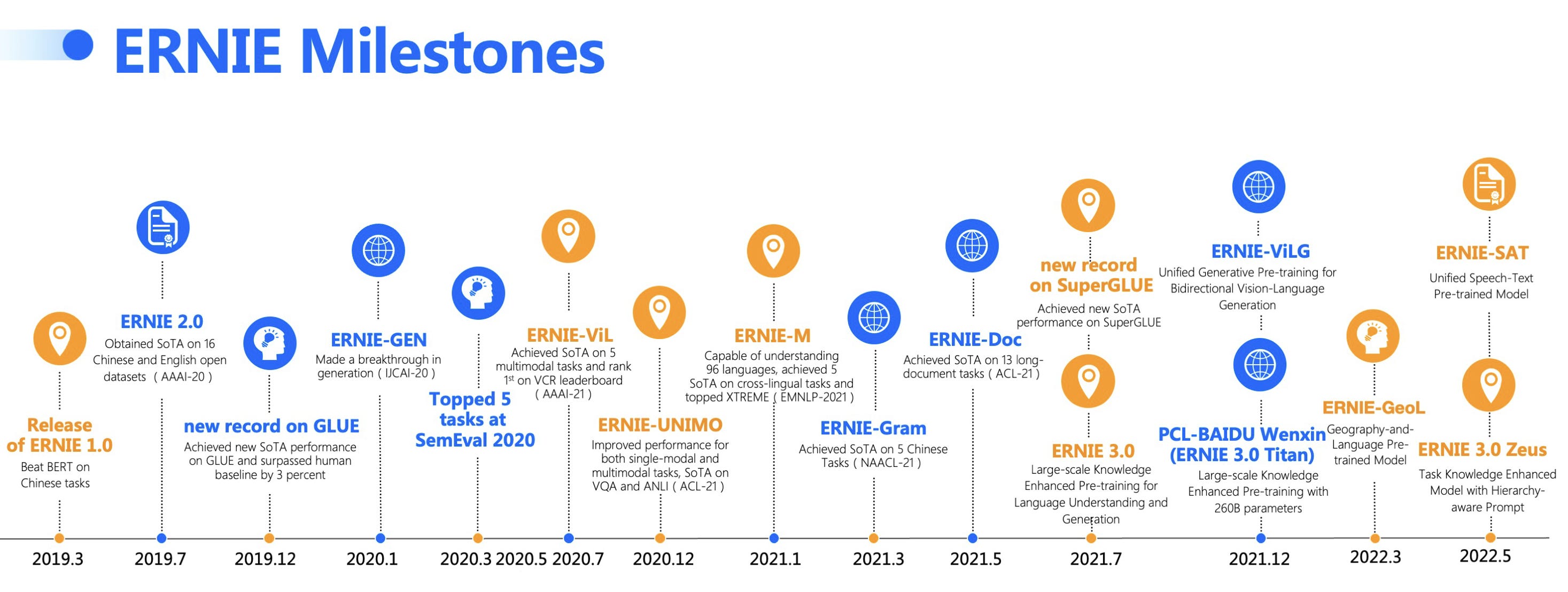Physical Address
304 North Cardinal St.
Dorchester Center, MA 02124
Physical Address
304 North Cardinal St.
Dorchester Center, MA 02124

Ernie Bot 3.5 has demonstrated superior performance over GPT-4 in Chinese language assessments. However, it remains unclear how its performance in these Chinese language tests compares to its performance in tests involving other languages.
Ernie Bot 3.5 is an artificial intelligence model developed by Baidu, a Chinese search engine company. According to Baidu, Ernie Bot 3.5 has outperformed OpenAI’s ChatGPT and GPT 4 in several key areas. Ernie Bot is based on Baidu’s foundational AI model called Ernie, which is trained on a massive dataset of text and code.
Ernie 3.5 is the model’s latest iteration and has reportedly shown significant advancements in several tasks, including creative writing, Q&A, reasoning, and code generation. Ernie Bot has been publicly tested in China since March 2023. The intense competition between technology giants in the US and China is driving rapid advancements in generative AI.
Artificial Intelligence has become an integral part of our daily lives, intensifying the competition among tech companies. Baidu, a leading Chinese tech giant, has recently unveiled its latest creation, the Ernie Bot. With bold claims of outperforming the well-known OpenAI’s GPT, Ernie Bot has caught the attention of AI enthusiasts worldwide. In this blog post, we will delve into the rise of Ernie Bot, explore its unique features, and evaluate its potential to surpass existing chatbot models.

Ernie Bot is Baidu’s most recent generative AI product and a knowledge-enhanced large language model. Introduced on March 16, 2023, at a press conference in Beijing, Ernie Bot aims to comprehend human intentions and deliver accurate, logical, and fluent responses that approach the human-level conversation. It can interact in dialogue, create content, reason with knowledge, and offer multiple output modes.
Ernie Bot is built on the foundation of a series of models known as Enhanced Representation through Knowledge Integration (Ernie) and Plato Pre-trained Dialogue Generation Model. Baidu has been working on these models since 2019. The Ernie model can learn from extensive knowledge and unlabeled data based on semantic units. On the other hand, Plato is capable of handling various conversation types, such as chit-chat, knowledge-grounded, and task-oriented dialogues. Ernie Bot, the latest version known as Ernie 3.5 Titan, boasts over double the parameters compared to GPT-3 and is nearly on par with the advanced GPT-4.
Benchmarking Ernie Bot:
To demonstrate Ernie Bot’s superiority, Baidu conducted several tests and benchmarks using different evaluation methods. For instance, Ernie Bot achieved an average score of 85% on standard admission and qualification exams, surpassing the average score of human candidates (75%) and outperforming GPT-3 (55%) and GPT-4 (60%). This showcases Ernie Bot’s strong grasp of general knowledge and ability to handle complex questions across various domains.
In another evaluation method called Multiple Choice Question Evaluation (MCQE), Ernie Bot achieved an average accuracy of 92%. This score surpasses GPT-3 (88%) and GPT-4 (90%), highlighting Ernie Bot’s advanced understanding of natural language texts.
Additionally, Ernie Bot performed exceptionally well in the GluCoKa (General Language Understanding Evaluation Conversational Question Answering) test, achieving an average F1 score of 88%. This outperforms GPT-3 (82%) and GPT-4 (85%), affirming Ernie Bot’s superior conversational question-answering ability.
Ernie Bot’s success signifies the emergence of a formidable player in the AI race. It challenges OpenAI’s GPT, other chatbot models, and AI systems in the market. Baidu’s commitment to developing cutting-edge AI technology and competing with other tech giants like Google, Facebook, and Microsoft is evident.
It is not only Baidu investing in AI and chatbot technology in China. Other tech companies, such as Alibaba, Tencent, and Huawei, are also actively developing their models and products. China’s vast market for AI applications, particularly in areas like education, healthcare, entertainment, and e-commerce, presents immense demand and potential for advanced chatbots capable of providing information, guidance, assistance, and entertainment.
China aims to broaden its global influence and presence in AI, challenging the dominance of the US and other countries in AI research and development
This signifies increased competition and collaboration between Chinese and non-Chinese companies and researchers. As a result, we can expect continuous innovation and diversity in AI and chatbot technologies to cater to users’ diverse needs and preferences worldwide.
Besides its impressive performance, Ernie Bot offers unique features that set it apart from other chatbots. One of these is the introduction of plugins. These modules enhance Ernie Bot’s functionality and performance by providing users with additional information, skills, or services. For example, the “Wen Shin Yiga” plugin enables Ernie Bot to generate creative content based on user input or prompts, such as poems, stories, and essays. Another plugin, “Wen Shin Chan Fan,” assists Ernie Bot in writing business documents based on user input or templates, including resumes, proposals, and reports.
Furthermore, Ernie Bot incorporates search integration, leveraging Baidu’s search engine to retrieve relevant information from the web. This feature allows Ernie Bot to access extensive data and knowledge from various domains and sources, leading to more accurate, logical, and diverse responses. Whether providing current weather information or using examples of love poems from famous poets, Ernie Bot leverages search integration to generate meaningful user responses.
While Ernie Bot showcases significant advancements in AI, there are challenges that Baidu and other AI developers must address. Ensuring the reliability and quality of information retrieved from the internet is crucial. Preventing the generation of harmful or inappropriate content is also a top priority. Additionally, AI chatbots’ ethical and social implications need careful consideration to address potential biases and ensure responsible use.
As of now, Ernie Bot 3.5 is not yet available for public use, and access to the chatbot is limited to invitees only. However, according to reports, over 65 companies have already signed up to use Ernie Bot’s technology. It is unclear when Ernie Bot 3.5 will be available for public use, but interested users can visit Baidu’s website for updates on the chatbot’s availability
Ernie Bot’s breakthrough in AI represents a significant leap forward in the field. Baidu’s creation challenges existing chatbot models and demonstrates China’s growing influence in the AI landscape. With its powerful capabilities, enhanced representation through knowledge integration, and unique features like plugins and search integration, Ernie Bot sets a new standard for AI and chatbot technology.
As Ernie Bot continues to evolve and refine, we can expect increased competition, collaboration, and innovation in AI from both Chinese and non-Chinese sources. The future holds immense potential for AI technology to cater to diverse user needs and preferences, revolutionizing various industries worldwide.